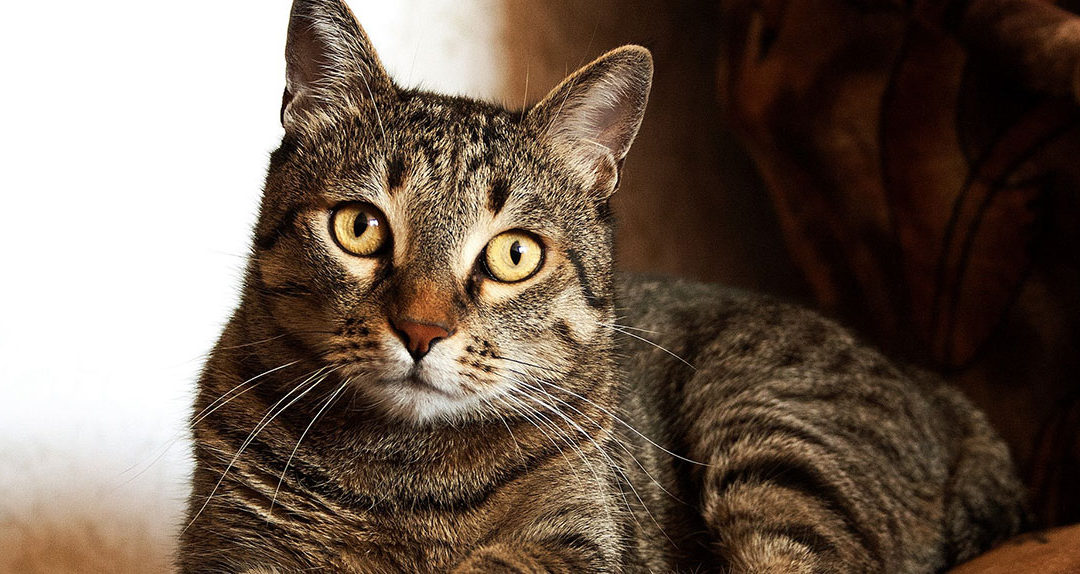Aside from being notoriously moody and aloof, cats can be very fussy when trying to communicate their needs. While some types of behavior can leave you scratching your head, others could be a cry for help.
If your cat has stopped using the litter box, they have something important they are trying to tell you. Determining what your cat is trying to say can be difficult, but arming yourself with knowledge of litter box basics puts you in the best position to interpret your pet’s behavior.
My litter box is dirty and I dislike the smell.
Cats have a strong sense of smell, and can develop a general distaste for the litter box as a result of odor, or maybe it simply feels different after it gets wet. How often are you cleaning the litter box? It is recommended you scoop the litter box multiple times a day, and completely empty and refresh the litter at least every 2 days. When changing the litter, inspect the condition of the box itself. If you notice a lot of scratch marks in the bottom, then it is time for a new litter box. These scratches are a haven for smells and fresh litter will not mask these odors!
I don’t like the size and style of my litter box.
Cats prefer litter boxes that are 1 and ½ times the length of the cat. Also, make sure the walls of the litter box aren’t too high for your cat to get in and out comfortably. Some cat owners prefer enclosed litter boxes, whereas many cats do not. This enclosed style of litter box is often frowned upon by fussy felines for various reasons (not enough ventilation for odors to escape, cats feel unsafe being completely enclosed, etc).
Do you have enough litter boxes for your cat/cats? As a general rule, you should have one more litter box than the number of cats in your household. For example, you should have 3 litter boxes if you have 2 cats in your home.
I don’t feel safe using my litter box and wish you would move it to a better location.
Is the location of your litter box easy for your cat to access, or do they feel threatened by its current location? For example, a door hits the litter box or your dog keeps chasing your cat when they are near the litter box. If your cat has a bad experience while using the litter box, they will be hesitant to continue using it.
Now that I’ve urinated on my favorite spot on the rug, I can’t wait to return and do it again!
As mentioned previously, cats have a strong sense of smell and will notice trace amounts of urine that humans may not notice. If they can still smell their urine they will be attracted to the area; therefore, it is vital to clean the soiled area immediately and clean it well! This is not an easy task, and will require a lot of paper towels and patience. Some veterinarians recommend using club soda or seltzer to clean carpeted areas. Once the initial smell is gone, an enzymatic cleaner will be extremely helpful.
Example of an enzymatic cleaner we previously referred to above
For particularly stubborn cats, placing a thick layer of plastic over the area will prevent future soiling and eliminate lingering odors.
I don’t like the texture of the litter in box, and I’m trying to decide what substrate I prefer instead.
Cats can be picky! Some prefer cold surfaces (tile floors, sinks, granite countertops), while others prefer soft material (fluffy rugs, a pile of clean laundry). Do you notice if your cat has a certain preference? They can instinctively develop a preference of one of these surfaces over their current litter in their litter box, OR they can decide they hate their current litter first, then they explore which substrates they prefer instead.
Based on the texture of your cats prefered substrate, choose a cat litter that has a similar feel.
Did you know cats like to dig? For this reason, the depth of the litter is also important. One hint to go by is: the more they dig the more they like the litter.
I am sick and in a lot of pain.
There are several medical conditions that can potentially interfere with normal urination or defecation. Some of these conditions can be an emergency.
One of the most serious emergencies your cat can face is urinary obstruction, especially in males (for anatomical reasons). Please know, if your male cat stops using the litter box, begins straining but only producing small amounts of urine, or vocalizes while straining to urinate please go to the vet immediately! Not only are they in agonizing pain, this condition can be fatal if not treated.
One of the best thing you can do for your cat is collaborate with your veterinarian
Click for a downloadable PDF questionnaire to take to your vet
It can be a frustrating and helpless feeling when your cats stops using the litter box. The good news is, the cause can be identified, prevented and eliminated!
If you’ve dealt with litter box issues before, please comment below and let us know about your experience. We love hearing from you!


Recent Blog Comments